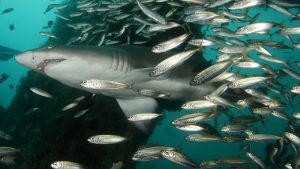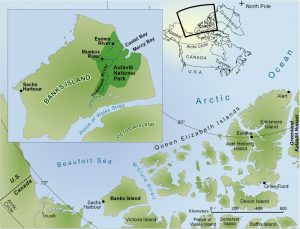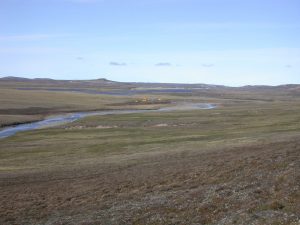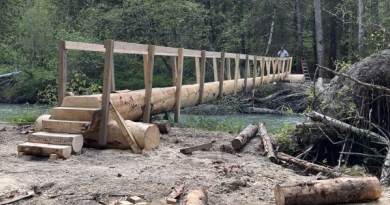Arctic shark teeth fossils may contain clues about climate adaptation
When we think of climate change and the Arctic, it’s usually polar bears or seals that come to mind.
But it turns out animal fossils dating from 50 million years ago have a story to tell us a well.
A recent study of shark teeth from this period suggests these animals could handle some of the environmental changes that come with warming temperatures better than we think.
“It could suggest that in future climate change that sharks have a lot more ecological plasticity, that is they can tolerate a lot more environmental conditions, then (what) they are living in today and make those fine physiological adjustments to be able to survive,” says Sora Kim, a postdoctoral fellow in Geophysical Sciences at the University of Chicago who led the study.
To find out why, Eye on the Arctic’s Eilís Quinn spoke with Sora Kim, a postdoctoral fellow in Geophysical Sciences at the University of Chicago who led the study:
Related stories from around the North:
Canada: More Grizzlies and wolves moving north to High Arctic, CBC News
Finland: Ticks appearing in Finland’s Arctic, Yle News
Greenland: Scientist plans to tag Greenland sharks, CBC News
Russia: Melting permafrost eroding Siberian coasts, Deutsche Welle Ice-Blog
Sweden: Swedish councils prepare for adaptation to climate change, Radio Sweden
United States: Mosquito swarms in Alaska’s Arctic: The worst of the worst?, Alaska Dispatch
Write to Eilís Quinn at eilis.quinn(at)cbc.ca








